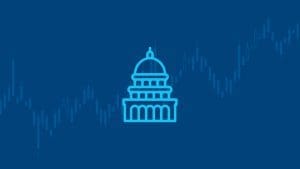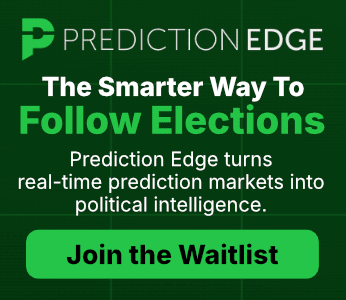In the ongoing debate over financial regulation, the Commodity Futures Trading Commission (CFTC) is at the center of a heated discussion about the future of event contracts involving elections, awards, and contests. These markets are seen by some as valuable tools for understanding public sentiment and enhancing civic discourse. The CFTC’s proposal to classify these markets as “gaming” has sparked significant public commentary, revealing deep divisions over their role in society.
How prediction markets promote epistemic humility:
“Left-leaning friends have told me they have become more likely to listen to conservative ideas to reach common goals because political prediction markets paid them to drop their shields and listen. They had to shed their biases. They had to shake off the terrible punditry that dominates our airwaves at no cost to those who spew it. They had to scrape off their instinct to belittle and mock information based on who said it and instead judge it based on its merits…To put it simply: I have never seen any school teach people the way prediction markets teach them.” – Scott Supak
A metaphor for prediction markets:
“Overall, I would say that the point of a prediction market isn’t to be an oracle that tells you the future. It can and will be wrong, sometimes hilariously wrong. The goal is to be BETTER than the alternative. A better flashlight to look ahead at the murky future.” – Scott Supak quoting an ‘old acquaintance’
On failure to regulate prediction markets:
“The FTX collapse clearly illustrates what happens without strong regulator intervention. The CFTC’s proposal to prohibit markets is not regulating them; it is a failure to regulate. This is the opposite of what I intended with Dodd-Frank. My intention was to create a robust framework for regulating markets, not ban entire markets.” – Ret. Sen. Blanche L. Lincoln (Arkansas 1999-2010)
Prediction markets and the public interest:
“The public interest in event contract markets, which provide an independent, objective source of information on sensitive matters of national and public interest, is all the more pronounced given the diminished trust in legacy institutions that have historically served as gatekeepers for such information. Event contract markets on political outcomes and other events of national importance (such as events involving war, terrorism, and significant national and international events) are invaluable to informing the civic discourse…The fact that some participants may use a market for “gaming” does not undermine its public benefits.” – Harry Crane, Rutgers statistics professor
On polling becoming more difficult:
Election betting markets, far from being simple profit-focused tools, are reliable sources of information for academics and the public, particularly as alternatives like polling become more difficult as fewer people respond. – M. Frank Bednarz, Adam E. Schulman, and Jack Despain Zhou of the Hamilton Lincoln Law Institute
“I think it is worth noting that political prediction/futures markets will continue to exist in the world whether or not the CFTC authorizes them, because in the UK and elsewhere there is a robust set of these betting markets which already include markets regarding United States politics. However, it is highly imperfect and messy to study such markets when U.S.-based participants, who would know them best, are excluded.” – Joseph Fishkin, UCLA law professor
“The CFTC cites 16 state law cases to support its argument that ‘wagering on elections is contrary to sound public policy.’ These cases are an average age of 158 years old, and none less than 96 years old; they are respectively 175, 96, 124, 120, 167, 165, 176, 158, 177, 181, 126, 173, 143, 196, 182, and 167 years old. Ten of the cases are from states where sports gambling is now legal, and are therefore not remotely precedential. Four are pre-Civil War cases from state courts that were at the time also upholding a ‘public policy’ of slavery.” – Jeremy Weinstein

























